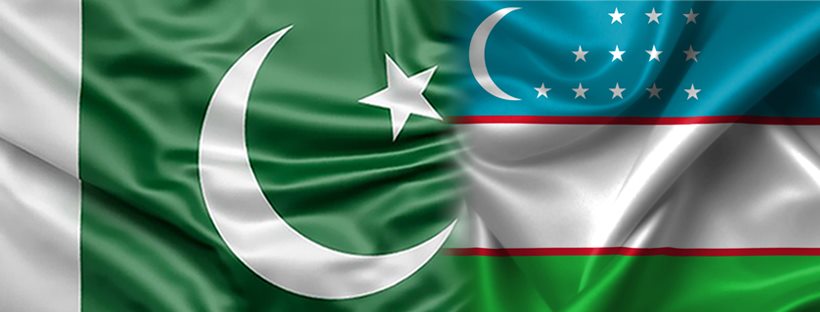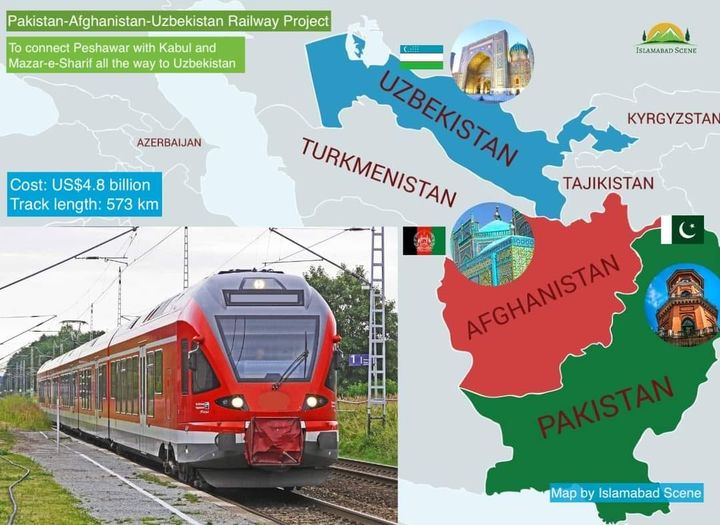The leaders of Pakistan and Uzbekistan held a virtual meeting on Wednesday to discuss ways of enhancing bilateral cooperation, with a particular focus on trade, security, and defense.
Prime Minister Imran Khan and Uzbekistan’s President Shavkat Mirziyoyev also underscored the importance of countering a rising wave of Islamophobia and promoting inter-faith harmony, according to a statement by the Pakistani premier’s office.

They also reviewed progress on the Trans-Afghan Railway Line Project, which was agreed between Pakistan, Uzbekistan, and Afghanistan earlier this year.
The project will link the Central Asian transport network with Pakistan’s seaports of Gwadar, Karachi, and Qasim.
The railway could transport up to 20 million tons of cargo per year, and the section from Termez to Mazar-i-Sharif, built by Uzbekistan, is already operational. The remaining 573-kilometer (356-mile) stretch to Peshawar will have to cross the Hindu Kush mountain range, where the passes are more than 3,500 meters (11,483 feet) above sea level, making it one of the world's highest mountain railways.
The section of the railway from Mazar-i-Sharif to Kabul, at a preliminary estimated cost of $5 billion, will be built mainly with borrowed funds. In late December, Uzbekistan, Afghanistan, and Pakistan jointly appealed to international financial institutions to support the project. Subject to financing, construction could begin in September this year.
The existing highway between Mazar-i-Sharif and Kabul will ensure the delivery of equipment and construction materials, while Uzbekistan and Tajikistan's power lines to the Afghan capital run along the same route, making it possible to electrify the rail link.
In Peshawar, the railway will connect arriving trains with the Pakistani transport system, thereby linking the Central Asian and Eurasian railway networks to those of South Asia and providing access to the Pakistani ports of Karachi, Qasim, and Gwadar. It is estimated that the new railway will reduce goods transportation times from Central Asia to Pakistan from 30 days to 15 and cut transportation costs by 30-35%.

The apparent reason for giving access to Pakistani ports priority over other options is that the Mazar-i-Sharif-Kabul-Peshawar route is the shortest one. But there is a more important one: the Kabul Corridor, together with the China-Kyrgyzstan-Uzbekistan transport corridor, will connect four economically powerful Eurasian regions – Europe, China, Russia, and South Asia – via Central Asia.
For all the importance of new landmark projects, further Central Asian cooperation is essential. Historically, the region has prospered most when it acts as a 'crossroads civilization, channeling and transforming Eurasian trade, and economic and cultural forces. In fact, Central Asia became a world leader in economic development, trade, technology, manufacturing, and intellectual life during the period referred to as its golden age, when it was open, dynamic, and willing and able to learn and adapt from others. There is no reason why Central Asia cannot succeed again. Practicing a form of open regionalism, Central Asians found many reasons to cooperate over several centuries. A return to that role would be good news for the entire world – and deserving of its leaders' attention.
By Sher Karimov




